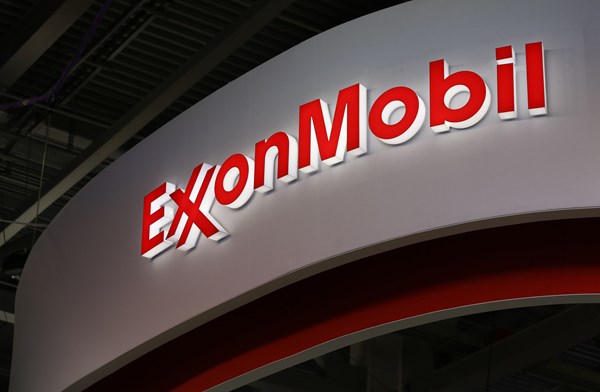US authorities fine ExxonMobil for deal with Russian Rosneft
A notice regarding a fine for ExxonMobil was placed on the US Ministry of Finance’s website. The notice points out that company and its subsidiary organizations (ExxonMobil Development Co. and ExxonMobil Oil Corp.) violated §589.201 of the sanction legislation introduced in connection with the events in Ukraine. This paragraph imposes a ban on deals with entities on the sanction list.
The violation with the company’s involvement took place in the period between the 14th and the 23rd of May 2014. The management of ExxonMobil signed eight agreements concerning oil and gas projects in Russia. As pointed out by the US Ministry of Finance, the agreements were signed with Rosneft CEO Igor Sechin. The head of Rosneft has been on the US sanction list since April 2014.
As Rosneft representative Mikhail Leontyev told RBC, ExxonMobil has always approached all actions in the context of the sanctions “very carefully”, and coordinated them with sanction lawyers. “I can’t imagine Exxon doing anything without first discussing it with sanction lawyers,” he added.
Leontyev points out that Igor Sechin was added to the sanction list as a physical entity, but not as a CEO, i.e. as a representative of the executive board of Rosneft, and in the opinion of American sanction lawyers, he could sign the agreements. “He was acting not as a physical entity in his own interests, but as the CEO of a company with which actions were being performed which do not fall under sanction restrictions,” Leontyev emphasized.
“All of this was publicly accessible for three years. As we have repeatedly said, the nature of the sanctions and their use by the American services is so random that this case is simply one of the illustrations,” he added.
In August 2014, the OFAC, the division of the US Ministry of Finance responsible for the sanctions, clarified that any transactions involving an entity featured on the sanction list were prohibited – even if the physical entity is acting on behalf of organizations which are not blocked. The OFAC emphasized that American companies do not have the right to make agreements signed by entities on the sanction list.
The US Ministry of Finance’s notice does not specify which agreements between Rosneft and ExxonMobil are concerned. However, as reported on Rosneft’s website, on the 23rd of May 2014, Rosneft President Igor Sechin and ExxonMobil Development President Neil Daffin signed an agreement to extend the validity period of the strategic agreement on the implementation of the Far East LNG project. The agreement concerned engineering surveys on land and at sea in the summer of 2014.
At the same time, Sechin and ExxonMobil Russia President Glenn Waller signed an agreement regarding the Sakhalin-I complex consortium’s rendering the services of drilling, extracting, preparing, transporting, storing and loading hydrocarbons extracted at the northern end of the Chayvo deposit, using the infrastructure of the Sakhalin-I consortium according to the licensing circumstances and the joint technical development scheme, Rosneft’s report notes. No information has been published on Rosneft’s website regarding other agreements or contracts made in May between Rosneft and the organizations of ExxonMobil. At the time when the deals which caused the fines were signed, ExxonMobil was headed by Rex Tillerson, the current US Secretary of State.
“In May 2014, ExxonMobil and Rosneft signed a joint operation agreement to develop seven resource sites located in the Kara and Chukchi Seas and in the Laptev Sea, in the context of extending the validity period of the strategic collaboration agreement (of which ExxonMobil has a 33% share)” ExxonMobil’s report for 2014 states.
ExxonMobil is a long-standing partner of Rosneft, although in 2014, after the EU and US introduced sanctions with respect to Russia’s energy sector, the company’s activities with respect to Russia have decreased significantly. In keeping with the sanctions, Exxon’s operations on the Russian Arctic shelf, in the Black Sea and also on the land in Western Siberia were phased out.
In April 2017, ExxonMobil asked the US Ministry of Finance to remove its joint projects with Rosneft from the anti-Russian sanctions, and to allow it to drill in the Black Sea. After consultation with US President Donald Trump, the Ministry of Finance announced that it does not intend to make an exception for Exxon.
